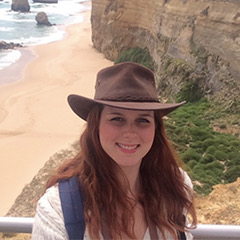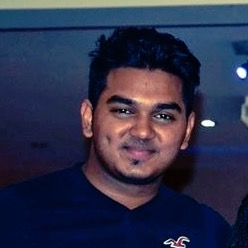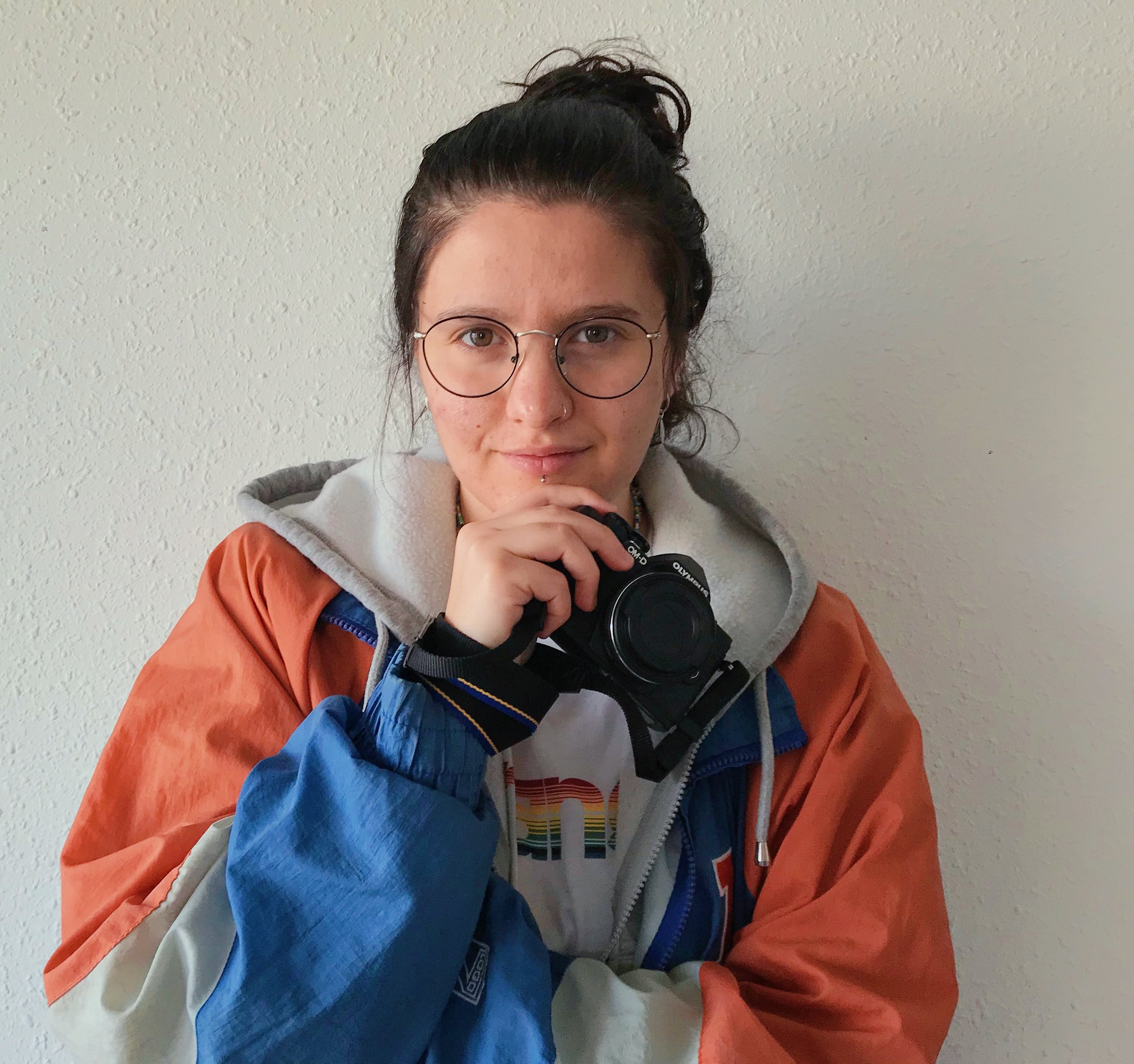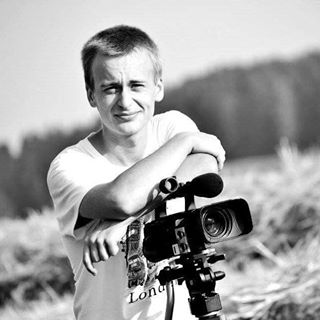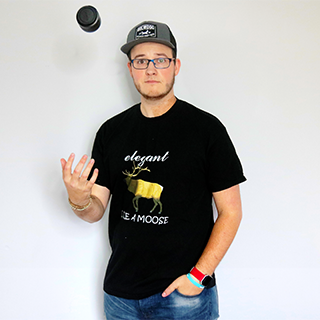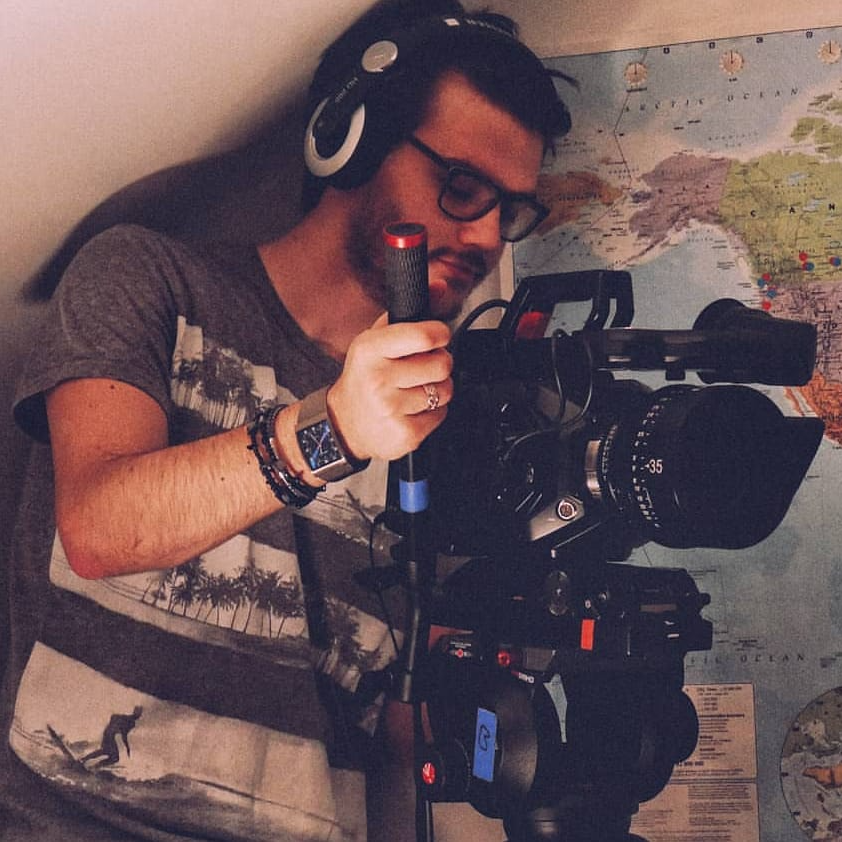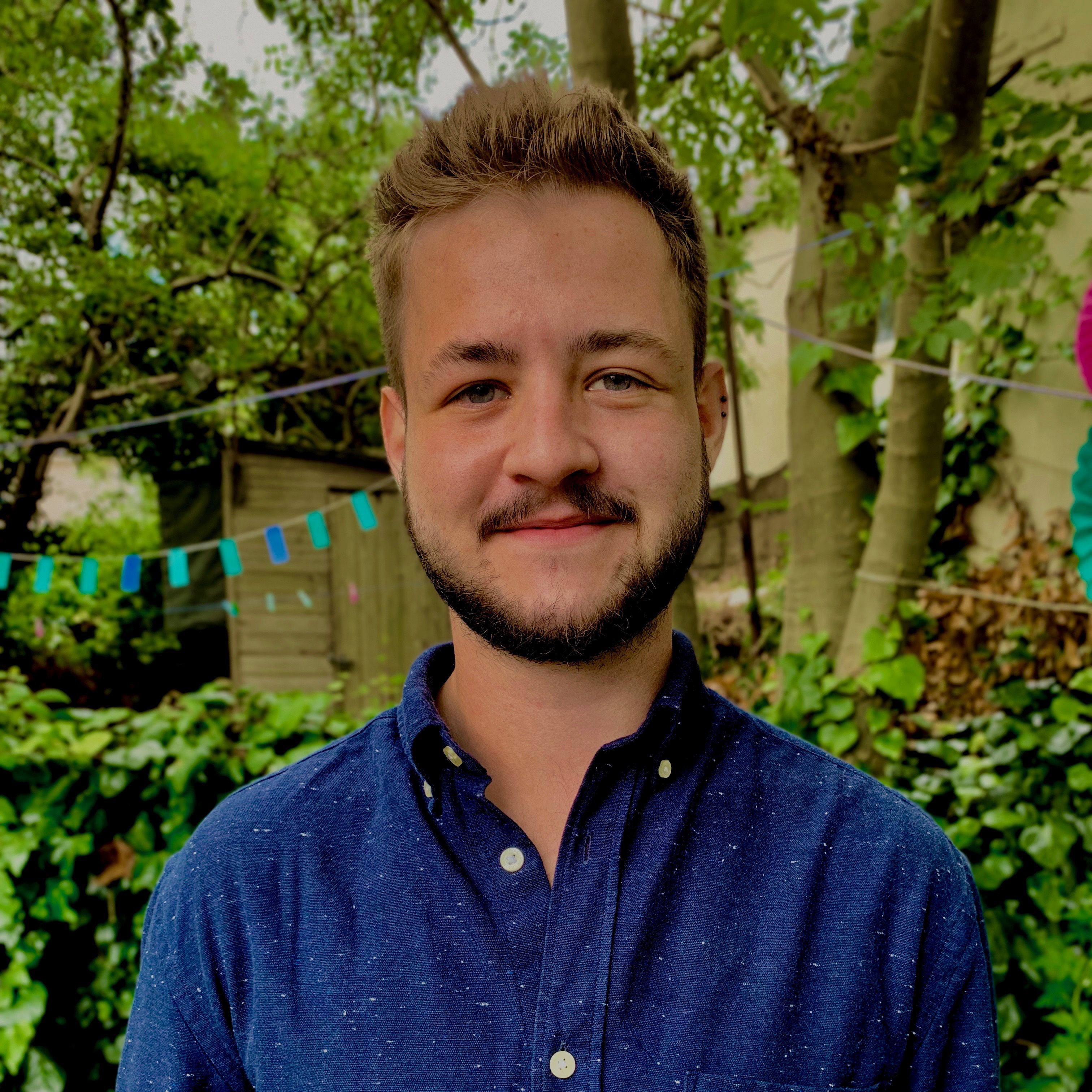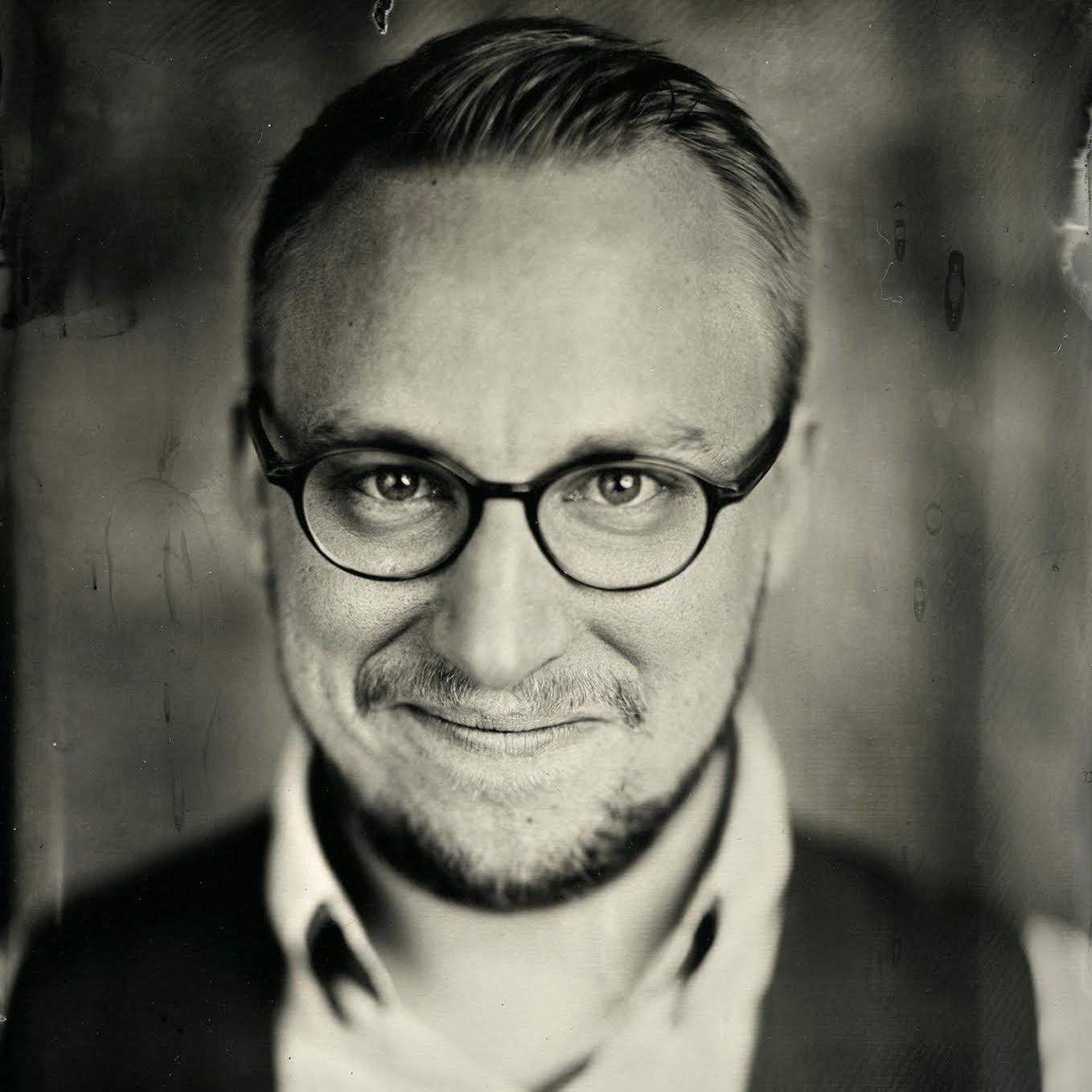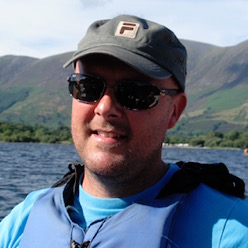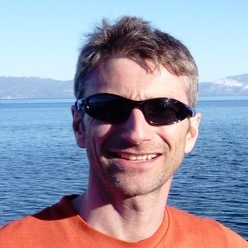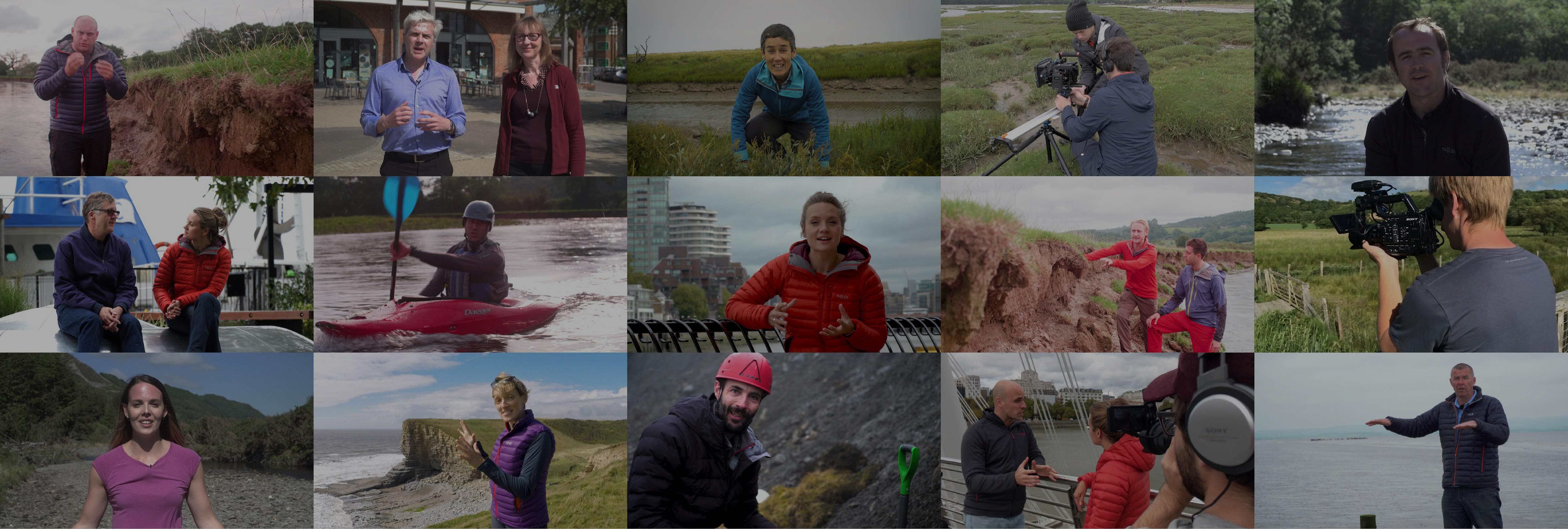
Our Team
Time for Geography videos are developed in collaboration with a world-leading community of geography–geoscience academic and professional experts. Find out more about these inspiring individuals below and via the links on our video pages.
Our team of geographers and geoscientists
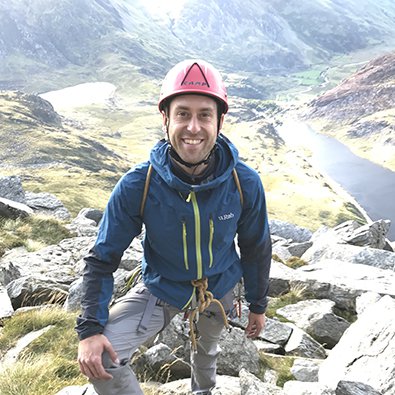
Rob investigating ancient landslides in Snowdonia
Platform Director
Dr Rob Parker is a geography and geoscience lecturer, educational film producer and director of Time for Geography.
Rob is passionate about the role of geographers and geoscientists in addressing the biggest challenges we face, through interdisciplinary research, discovery and innovation. Through Time for Geography, Rob facilitates a unique community of the world’s leading geographers and organisations, to help geography’s next generation achieve success in their journey from the classroom to university and careers shaping the future of our world.
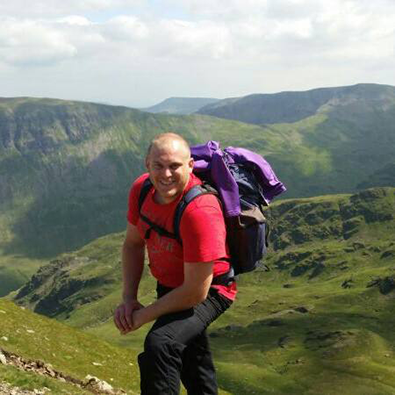
Tim exploring glaciated landscapes in the Lake District National Park.
Lead Teacher and Examiner
Tim Parker is a multi-award-winning geography teacher, examiner and educational screen writer.
Tim is a geography teacher, award-winning educational screenwriter and renowned Time for Geography presenter. Based in Hong Kong, he is an active Geography subject leader, producing educational programmes used to educate and inspire geography students in over 200 countries and territories.
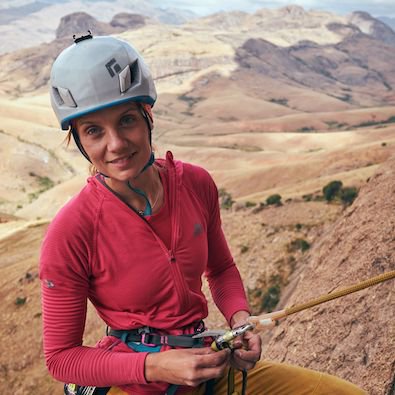
Harriet exploring granite big walls in Tsaranoro, Madagascar
Production Coordinator
Dr Harriet Ridley is a palaeoclimatologist and Production Coordinator at Time for Geography.
Harriet is a passionate geographer, with a particular interest in palaeoclimate science. Before Time for Geography, she conducted research in the Caribbean and Central America, venturing into deep, tropical caves to investigate past climate using geochemical signals in stalagmites. As an adventurous rock climber, Harriet frequently undertakes international climbing trips, exploring some of the world’s most intriguing geological and geographical areas.
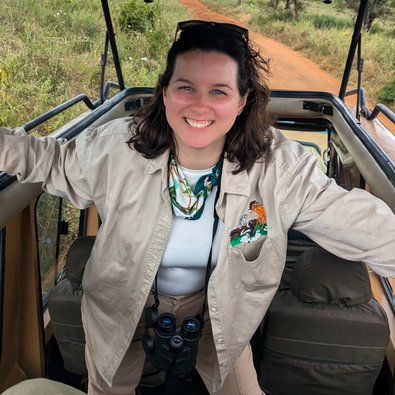
Emily Bilbie
Project coordinator and head of geography CPD
Lecturer, acclaimed geography video producer and head of CPD
Emily is an experienced university lecturer, pioneer in the delivery of higher education through documentary film, and Associate Fellow of the UK Higher Education Academy for the professional standards framework in teaching and supporting learning for higher education. As well as producing many of Time for Geography's award-winning videos, Emily oversees activities with Time for Geography partners and support for the continued professional development of geography teachers.
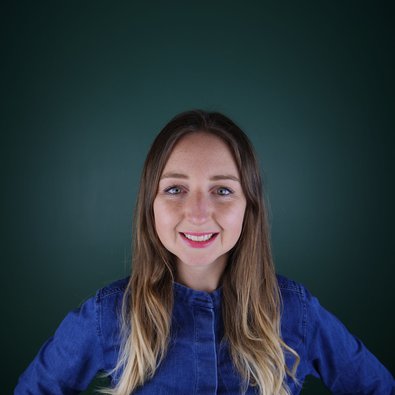
Ellie Barker
The Curious Geographer
Ellie is a YouTuber, geography teacher, examiner and textbook author.
Ellie is passionate about exploring the life and work of geographers from around the world, including academics, authors and activists. By revealing their stories to students, through in-depth, live interviews, Ellie aims to inspire a new generation to pursue exciting geographical careers and address major global challenges.
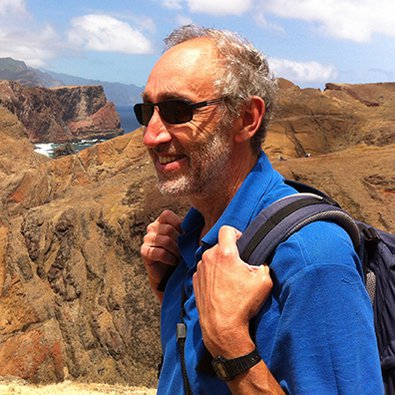
Simon on fieldwork in Madeira
Curriculum Adviser
Simon Ross is a former Head of Geography and prolific author of geographical teaching resources.
Simon has written extensively for the new GCSE and A-level specifications. He acts as a geography consultant for a variety of organisations, and has written and presented educational videos from locations around the world, including Iceland and Italy. He also delivers CPD training for teachers and students. In his spare time he enjoys running and tending his allotment!
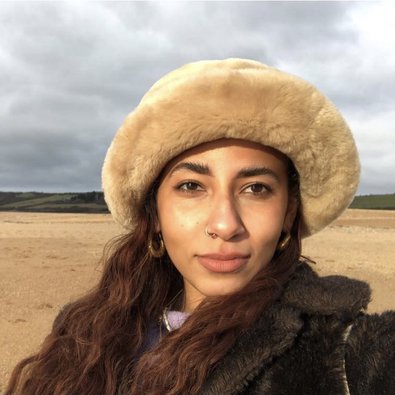
Gabriella Vincent-Hann
Environmental Geoscientist interested in Climate and Sustainability.
Having grown up on the Jurassic Coast in Dorset, Trinidad and Tobago and Vancouver, Canada, Gabriella has an avid interest in the natural environment. When she's not presenting Time for Geography videos, she enjoys spending her time outdoors wild swimming and sailing!
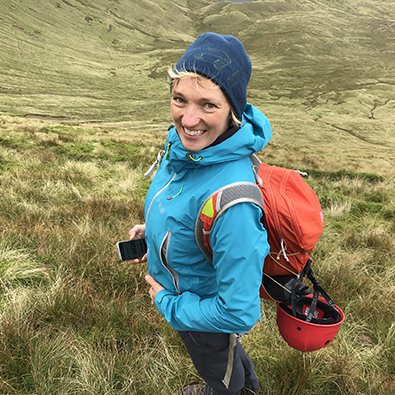
Claire out on fieldwork in South Wales
Dr Claire Earlie is a coastal geomorphology expert, conducting geographical research at universities in the U.K., France and the USA.
As a field scientist specialising in how extreme waves affect our coastlines, Claire has studied some of the biggest storms the west coast of the U.K. and France have experienced over the last century. Claire is fascinated by the ocean and how it interacts with the land, studying and teaching everything coastal. Claire is currently a Lecturer in Coastal Processes at Cardiff University.
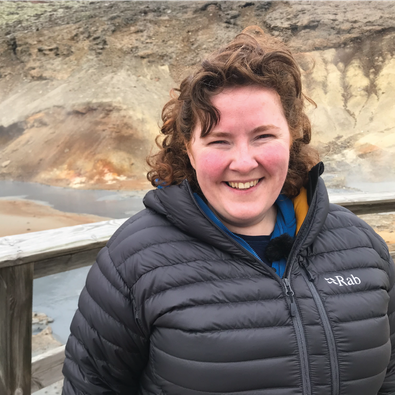
Dr Rhian Meara
Rhian is a geologist with a particular interest in volcanic eruptions and geochemistry.
Rhian has been fascinated by natural hazards and volcanic eruptions since visiting Iceland on a family holiday when she was 12 years old! She has studied volcanoes and their deposits in Iceland, the USA and Japan and is a lecturer in Physical Geography and Geology lecturer working at Swansea for the Coleg Cymraeg Cenedlaethol.
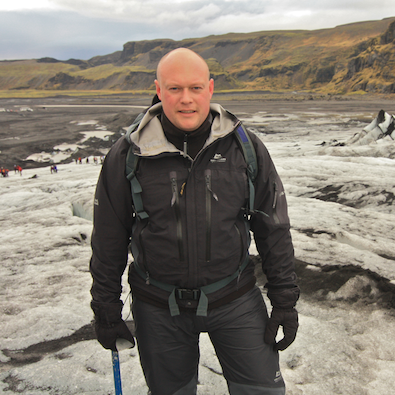
Howard scaling Europe's largest ice cap at Vatnajökull in Iceland
Howard is a geography examiner and a specialist in exam performance and technique.
Howard brings a knowledgeable insight into how students can score top marks in their exams. He draws on over 15 years of experience marking exams as a subject specialist for a leading exam board and Head of Geography in an Independent School.
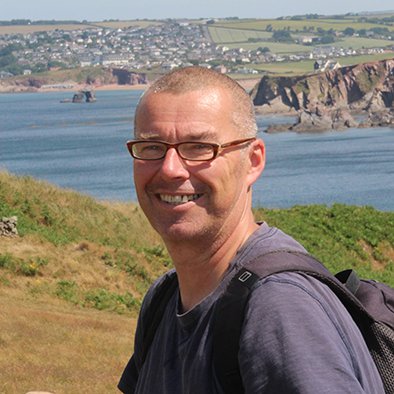
Chris on fieldwork on the Somerset coast
Chris is a physical geographer specialising in coastal geomorphology, coastal management and reconstructing past environments.
A senior lecturer in coastal processes and coastal management at the University of the West of England, Bristol, Chris conducts research into reconstructing Quaternary Environments in British coastal lowlands. He has an interest in Geography educational outreach, & delivers keynote lectures and workshops to schools.
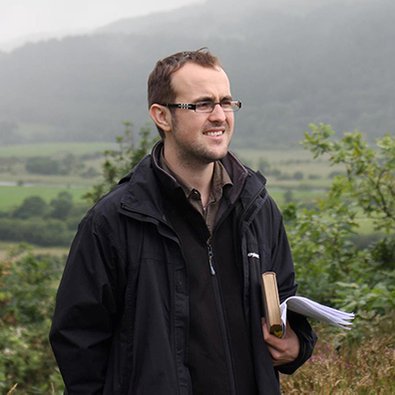
Hywel on fieldwork in Wales
Hywel is an expert in the physical, historical and cultural geographies of flooding.
Hywel specialises in the geomorphological effects of floods, reconstructing flood histories and how they are perceived by society. He works mainly in Wales, but has also worked in Ireland, South America and South Africa. Hywel is a Senior Lecturer in Physical Geography in the Department of Geography and Earth Sciences, Aberystwyth University.
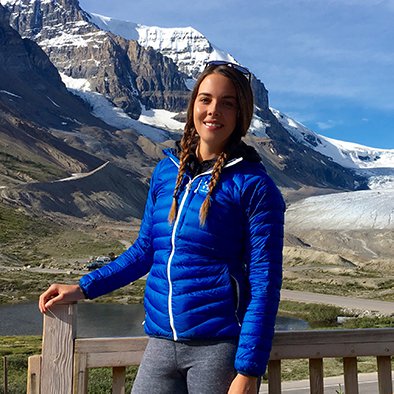
Sioned on fieldwork in the Canadian Rockies
Sioned is currently completing her PhD on Welsh geoheritage at the Department of Geography and Earth Sciences at Aberystwyth University.
Sioned specialises in the relationship that exists between Welsh landscapes, heritage and culture, and how integrating different forms of knowledge can attract more visitors and enhance their experiences of Welsh landscapes.
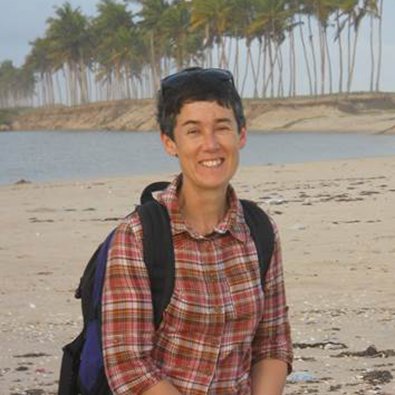
Sian on fieldwork in West Africa
Sian is Head of the School of Environmental Sciences at the University of Derby.
Sian specialises in sedimentology, which she uses to research the evolution of modern and ancient river and coastal environments. Fieldwork has taken her across the world with projects in Europe, North America and West Africa.
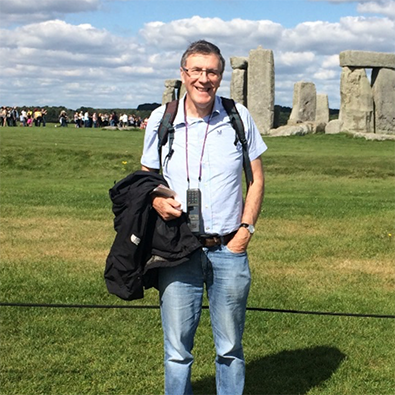
Howard on fieldwork at Stonehenge
Dr Howard Fox is a Senior Lecturer in Geography at the University of Derby.
Howard is a Geomorphologist who specialises in coastal geomorphology. He has worked for 25 years in southern Morocco on a variety of projects, including cliff erosion and tidal estuaries on the Atlantic coast, water supply in mountain villages and conservation of the argan woodland.
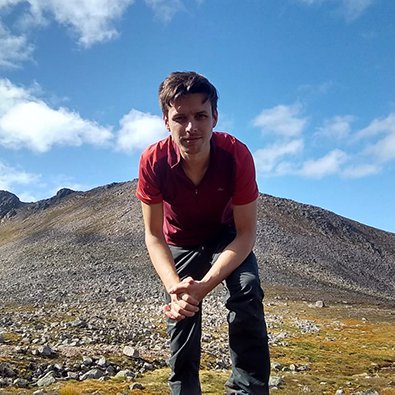
Dr Toby Tonkin
Toby is a physical geographer with an interest in terrestrial glacial landsystems.
As part of his research, Toby has deployed drones and ground-penetrating radar to sites in Sweden and Norway to help understand how glacial landscapes and landforms evolve following deglaciation. Toby currently works as a Lecturer in Physical Geography at the University of Derby.
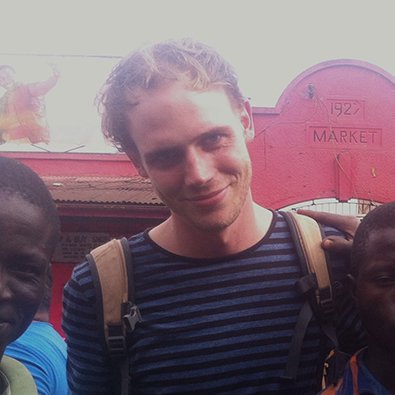
Dr William Monteith
Will is a lecturer in human geography at Queen Mary University of London.
Will's research explores experiences of work – or ‘making do’ – at the margins of formal economies; the politics and products produced by these experiences, and the ways in which they are transforming cities and societies.
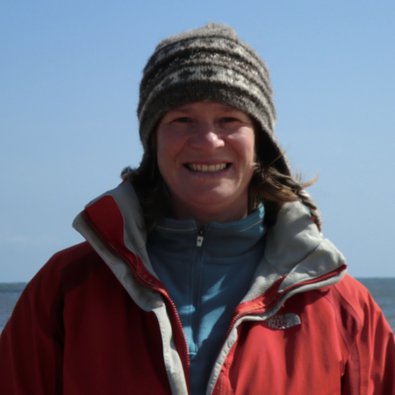
Dr Sue Dawson
Sue is an expert on tsunamis and Head of Geography & Environmental Science at the University of Dundee.
Sue is a hazard geoscientist with expertise in extreme coastal change, including tsunamis and storms. Her research considers the impact of tsunamis generated by submarine landslides and earthquakes, and the potential for tsunami hazards to increase with the response to climate change in the Arctic.
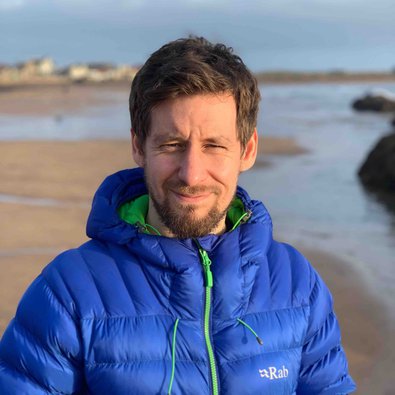
Dr Simon Cook
Simon is a Seniour Lecturer in Environmental Change at the University of Dundee.
Simon is a geoscientist who specialises in glaciology, geohazards and the geomorphology of mountain landscapes. His work focuses on understanding how mountain environments respond to climate change, and how people are affected by this through changes to water supply and hazards like glacial lake outburst floods and landslides.
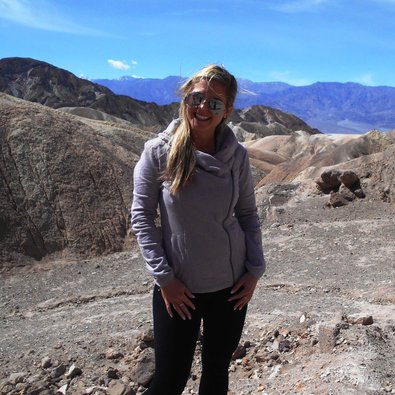
Dr Melissa Lazenby
Melissa is a climate scientist and lecturer in global climate change at the University of Sussex.
Melissa's research focusses on the climate of southern Africa. As a climate scientist, she is passionate about teaching and ensuring that climate information is communicated as widely as possible, to guide better decision-making.
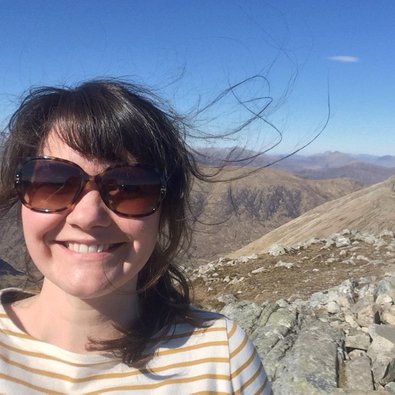
Dr Heather Price
Heather is a lecturer in environmental geography at the University of Stirling.
Heather is fascinated by the relationship between people and the environment, and her research focuses on environmental pollution and public health. She has a particular interest in working within informal settlements (or slums) in rapidly urbanising areas where levels of pollution are often greatest. Her research takes her to exciting destinations like Kenya, Malawi and Tanzania.
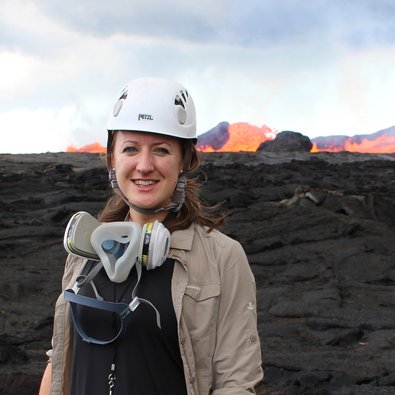
Dr Emma Liu
Volcanologist using drones to explore previously inaccessible volcanic gases!
Volcanoes are spectacular natural phenomena that have shaped the Earth over geological timescales. As a volcanologist, my research investigates what makes volcanoes 'tick' and I focus on measuring volcanic gases to reconstruct what is happening deep beneath the surface. I use drones to carry my sensors high up into the volcanic plume and take measurements that would otherwise never be possible.
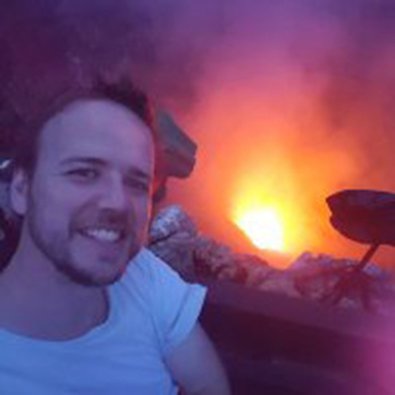
Dr Tom Pering
Volcanologist at the University of Sheffield.
Tom is a volcanologist and Lecturer at the Department of Geography (University of Sheffield), who studies gas release from volcanoes. In particular, Tom focuses on eruptions of basaltic magmas, and is interested in low-cost methods for measuring volcanic activity. Tom's work regularly takes him to exciting volcanic locations, including locations such as Nicaragua, Peru, and Vanuatu.
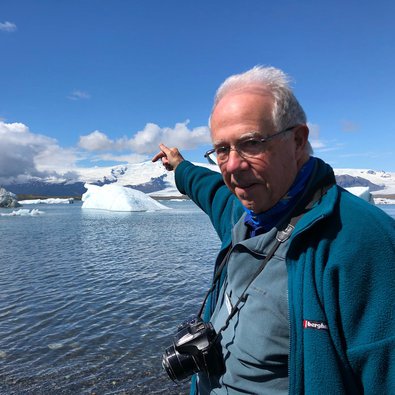
Tony Escritt
Iceland guide and specialist in geography educational field studies.
Tony has a degree in geography and is a field studies consultant and guide for the Icelandic educational travel company Trex. As a experienced location adviser for numerous films and documentaries, Tony helps support Time for Geography's overseas production activities in Iceland!
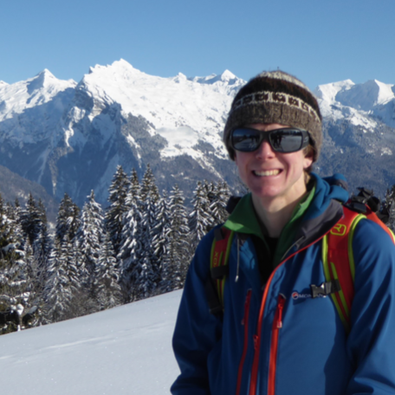
Darren leading Alpine expeditions
Darren Axe is an international expedition leader and Fellow of the Royal Geographical Society.
Darren is an International Mountain Leader (IML), Fellow of the Royal Geographical Society (FRGS) and public speaker. His mission is to engage people in exploratory journeys, in the diverse landscapes of the U.K., Europe and further afield. Darren’s work focusses on contemporary debates in sustainable development and the socio-environmental impacts of travel and expeditions.
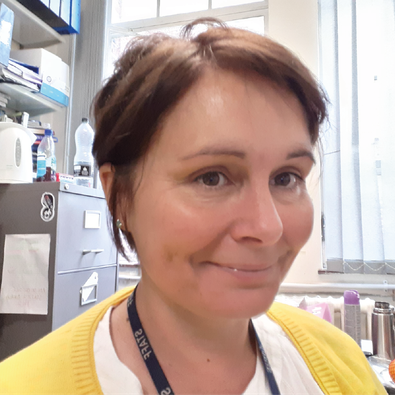
Dr Mary Kelly
Mary is a human geographer specialising in the areas of social, cultural and historical geography.
Mary is a senior lecturer at Kingston University where she teaches Introduction to Human Geography, Social and Cultural Geography, Geographical Theory and Practice and Global Rural Geographies. Her research interests include migration studies, literary geographies and historical GIS.
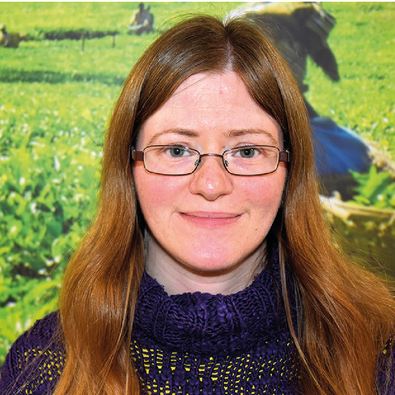
Dr Sarah Arnold
Sarah is a researcher and lecturer in ecology and entomology at the University of Greenwich.
Sarah previously completed degrees at the University of Cambridge and then Queen Mary, University of London, where she was introduced to the fascinating diversity of UK and global ecosystems and the processes driving them. Her research areas now encompass managing agricultural to support insects that benefit crops.
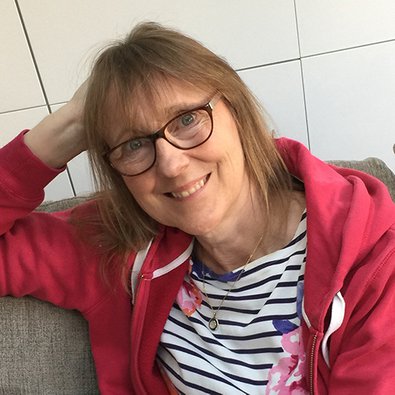
Dr Carol Ekinsmyth
Carol is a Human Geographer with expertise in cities, the creative industries and entrepreneurship.
Carol is fascinated by the relationship between places, industries and work. She is a leading scholar in the areas of self-employment, women's entrepreneurship and ways in which place and social factors influence people's working lives. Carol is a Principal Lecturer in Human Geography at the University of Portsmouth.
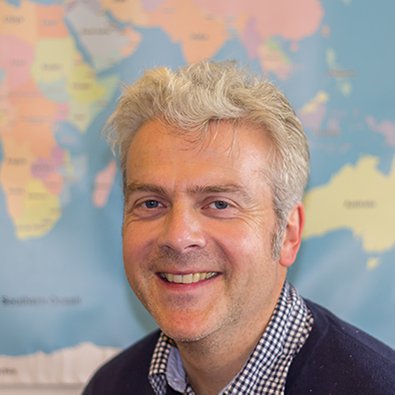
Prof Donald Houston
Professor of Regional Economic Development
Donald is an Economic Geographer specialising in local labour markets, particularly exclusion from employment.
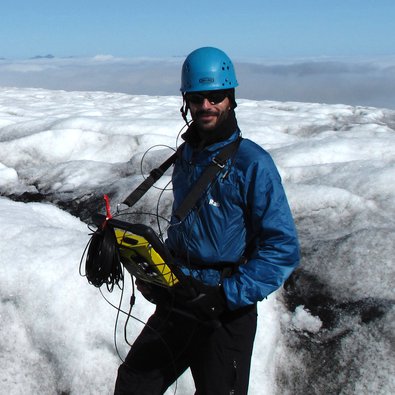
Dr Richard Waller
Richard is an expert on glaciers, permafrost and the landscape impacts of Arctic climate change.
Richard has been fascinated by mountain environments since he studied geography at school. His research focuses on the distinctive processes and landforms that occur in glacial and permafrost environments, providing amazing opportunities to work in Iceland, Greenland, Norway, Alaska and the Canadian Arctic. Richard is currently a Senior Lecturer in Physical Geography at Keele University.
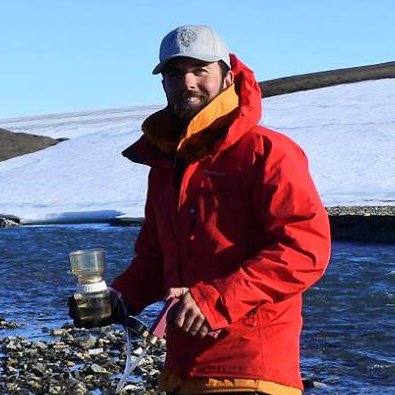
Dr Tim Lane
Tim is a lecturer in Physical Geography at Liverpool John Moores University.
Tim is a physical geographer who specialises in glacial geomorphology, environmental change and landscape development in glaciated regions. He is particularly interested in the behaviour of Arctic Ice Sheets and glaciers during the last glacial cycle. He uses a combination of field and laboratory techniques, and has undertaken fieldwork in Greenland, Iceland, Norway, USA, and Kenya.
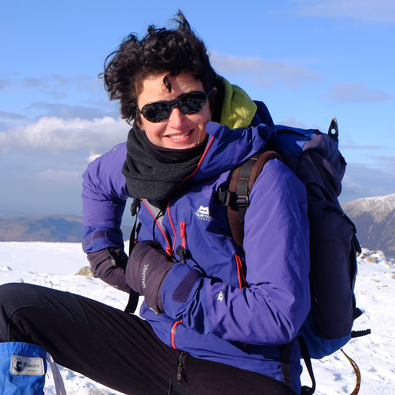
Dr Angela Gallego-Sala
Angela is an Associate Professor in Ecosystems and Biogeochemical Cycles at the University of Exeter
Angela is a biogeochemist who focuses on carbon cycling through terrestrial ecosystems. She is passionate about peatlands and endeavours to understand how these ecosystems respond to climate change and human pressures. She has carried out fieldwork in the tropics and sub-polar environments to better understand carbon cycling in peatlands.
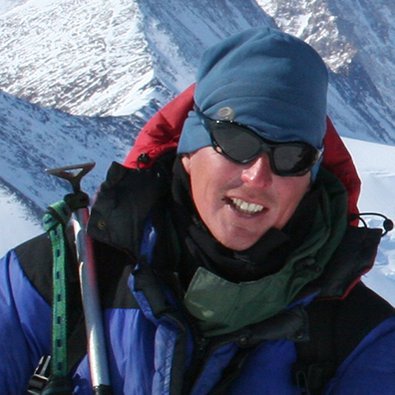
Professor Chris Fogwill
Chris studies climate change, and its impacts on Earth's ice sheets and oceans today and in the past.
Chris is Professor of Glaciology and Palaeoclimate at Keele University and Adjunct Professor at the University of New South Wales, Australia. His research – focused on Antarctic ice-sheet history and global sea level rise – is truly multidisciplinary, spanning Quaternary ice-sheet reconstruction, the development of new climate archives from snow and ice, and ice sheet and Earth system modelling.
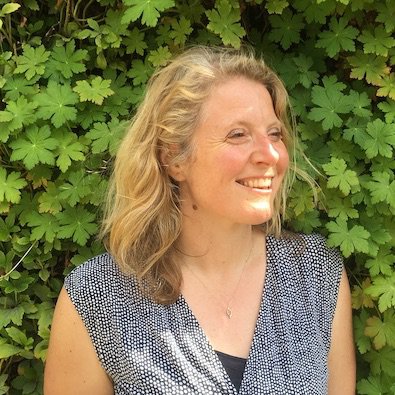
Professor Harriet Bulkeley
Harriet is Professor of Geography at Durham University UK and Utrecht University in the Netherlands
Harriet’s research focuses on environmental governance and the politics of climate change, energy and sustainable cities. She’s interested in the growth of urban experiments in response to the challenges of sustainable development and the implications for social justice. She currently co-ordinates the H2020 project NATURVATION examining how nature-based solutions can contribute to urban futures.
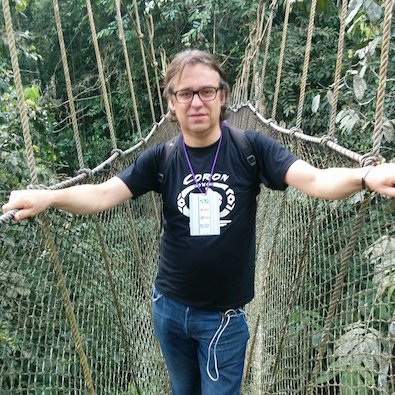
David Hurley
David is a Chartered Civil Engineer and a Drainage Specialist at Atkins
David is a Fellow of the Institute of Civil Engineers and has 24 years of experience working on infrastructure projects. He is an expert in drainage design and works on many large projects in the UK and abroad. He was the Atkins drainage lead for the London 2012 Olympic Park and the Heathrow Expansion Project.
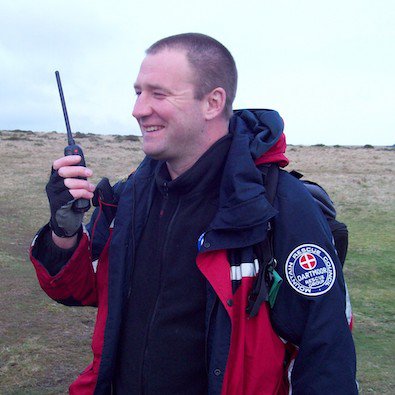
Professor Richard Yarwood
Richard is a Professor of Human Geography at the University of Plymouth
Richard has wide interests in human geography and specialises in rural geography, social geography and citizenship. He has recently examined the geographies of crime; military geographies and the city; living on canal boats and migration. He is passionate about communicating geography, edits the GA's 'Geography' and is a member of Dartmoor Search and Rescue Team, Pymouth.
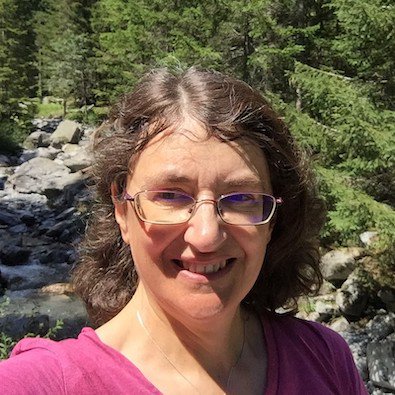
Dr Olivia Wilson
Olivia is a Human Geographer and a Planner
Olivia started her career as a Rural Geographer and was lucky to spend almost three years working in New Zealand researching changes in farming. She has also worked as a planner at Plymouth City Council, making policies and working on exciting projects . Her academic interests now focus on urban planning and provision of green spaces and she is an active member of the Royal Town Planning Institute.
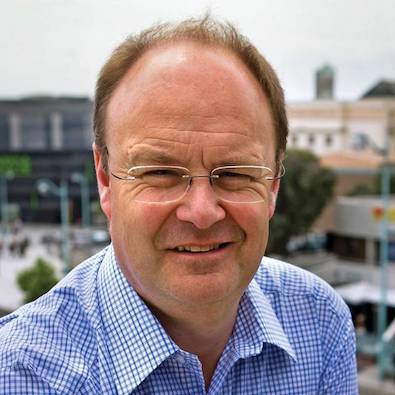
Dr Stephen Essex
Stephen is an Associate Professor (Reader) in the School of Geography, Earth and Environmental Sciences at the University of Plymouth.
Stephen is a human geographer. His research focuses on the formulation of planning and public policy related to sustainable urban transformations, including mega-events, post-war reconstruction and sustainable tourism.
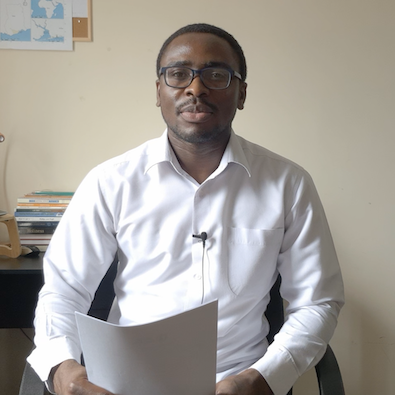
Dr Daniel Koomson
Daniel is a geographer specialising in climate change adaptation and resilience
Daniel is a geography researcher, whose recent work focuses on understanding how the livelihoods of people in small-scale fishing communities are impacted by climate change. He also has expertise in sustainable forestry and nature management, and in 2021 he gained his PhD from the University of Derby.
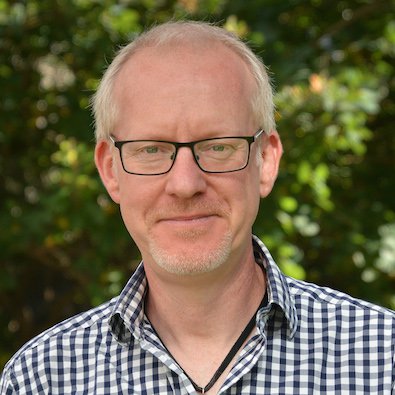
Professor Jon Shaw
Head of School of Geography, Earth and Environmental Sciences at the University of Plymouth.
A human geographer, Jon is interested in mobility and transport—where people travel, why and how they go places, and why that matters. His recent book with Iain Docherty, Transport Matters, used a ground-breaking approach to explain these things by focusing on the everyday journeys made by a fictional British family, the Smiths. Jon has worked in the UK, Germany, Australia and New Zealand.
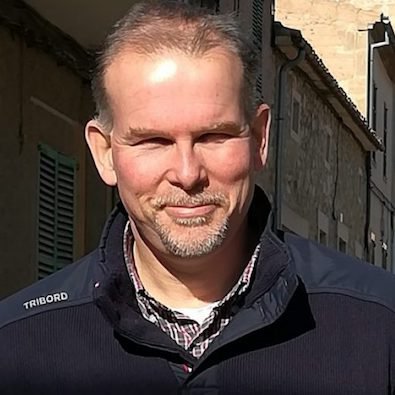
Richard Thompson
Geography fieldwork specialist
Richard is a British teacher who has been based in Spain since 2001. He specialises in teaching geography fieldwork and runs his own fieldwork centre in Mallorca. He has worked with student groups from over 30 different countries and is a passionate advocate of learning outside the classroom. Areas of interest include coastal management, tourism, urban/rural regeneration and water security.
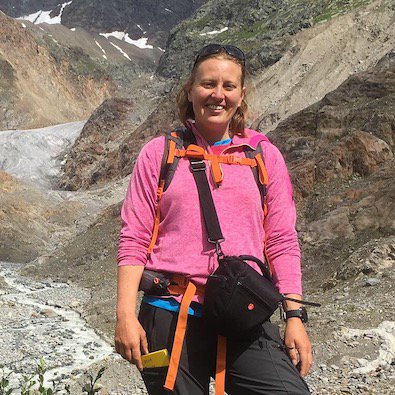
Dr Bethan Davies
Bethan is a Senior Lecturer in the Department of Geography, Royal Holloway University of London
Bethan is a glaciologist and glacial geologist interested in the interaction between glaciers and climate over multiple timescales. Her current research interests are orientated towards the Antarctic Peninsula and the former ice sheets in Britain and Patagonia.
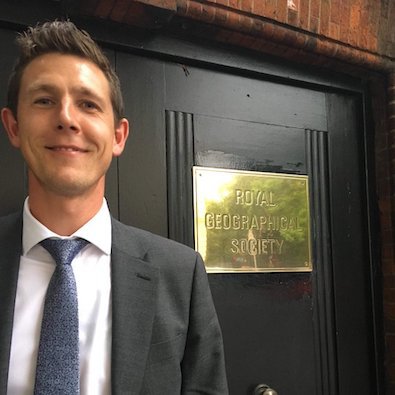
Dr Aidan Hesslewood
Aidan is a geography teacher, department head and a Geographical Association activist.
After completing a PhD on representations of youth in the night-time economy, Aidan trained to be a secondary geography teacher. He is a GA consultant, GA branch chair, an editorial member of Teaching Geography, and SGQM moderator. In 2018, Aidan won the RGS-IBG Ordnance Survey Award for excellence in secondary geography education.
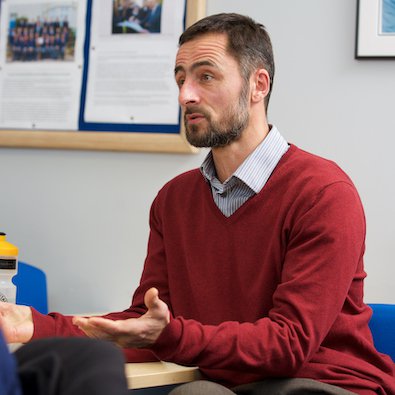
Alan Kinder
Alan is Chief Executive of the Geographical Association
A former geography teacher, field studies officer and teacher trainer, Alan now leads the professional association for teachers of geography, the GA. His work involves advocating for geography education, including at government level, representing the view of teachers of geography and coordinating the GA’s national and international work to support high-quality geography in schools.
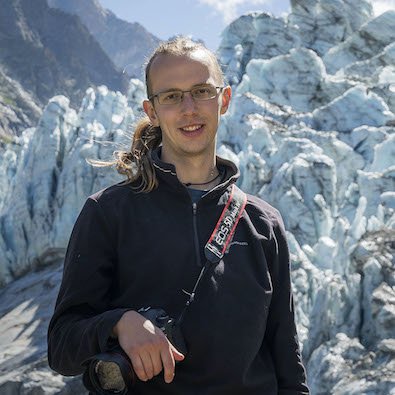
Dr Kieran Baxter
Kieran is a lecturer in Communication Design at the University of Dundee.
After completing a PhD in landscape heritage visualisation Kieran has continued to investigate the role of design and media practices in science communication. In addition to his lectureship at University of Dundee he also holds a postdoc position at University of Iceland where he researches how glacier downwasting and climate change can be effectively communicated to public audiences.
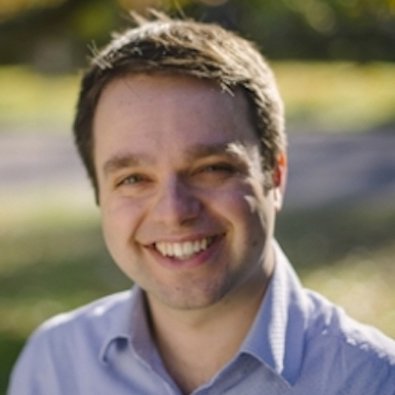
Dr Matt Finn
Matt is a Senior Lecturer in Human Geography at the University of Exeter.
Matt's interests centre on geography, education and childhood. He explores the complex place and power of education in people's lives and works to understand how childhood and young people's lives vary globally. His brings this to his work on geographical learning and education.
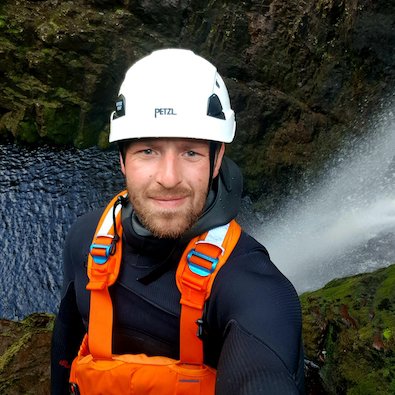
Sam Hawkins
Sam is a geography teacher and outdoor instructor, specialising in outdoor education.
Sam is an outdoor education tutor in North Wales. He teaches young people how to apply geographical fieldwork skills as part of the national curriculum. He is passionate and knowledgeable about the natural landscape and as a climbing and canyoning instructor, Sam shares this passion and knowledge while delivering adventurous outdoor activities.
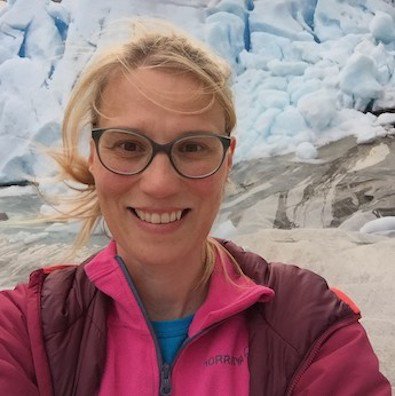
Dr Lynda Yorke
Lynda is a Quaternary geomorphologist and Senior Lecturer of Physical Geography at Bangor University
Lynda investigates former glacial and riverine environments using a combination of sedimentology and geomorphology, and is interested in understanding the processes that drive change in these environments. She mostly works in the UK and Norway.
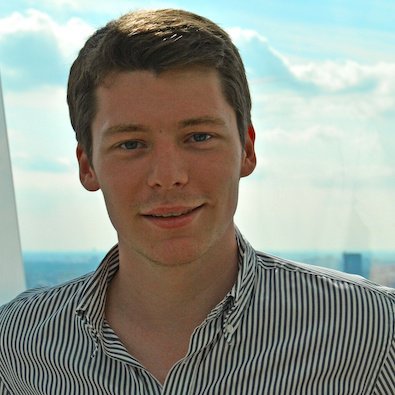
Marian Jacobs
Marian is a Ph.D candidate in Geography at King's College London
Marian's research focuses on environmental and energy geographies and urban political ecology of energy transitions in West and Eastern Europe. He is particularly interested in applying critical theory to analyse the relationship between structures of energy governance, energy science (especially thermodynamics) and environmental dynamics.
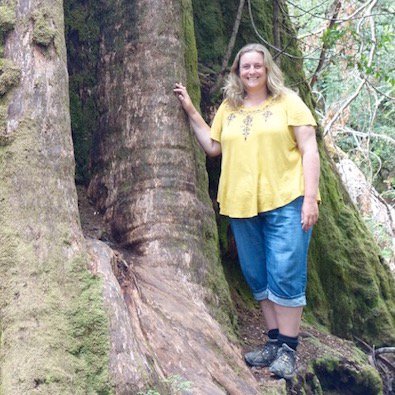
Professor Jenny Pickerill
Jenny is a Professor of Environmental Geography at the University of Sheffield
Jenny is interested in everyday approaches to reducing environmental impacts. She works with people who build their own Eco-houses, live in Eco-communities, and take part in environmental campaigns and protest to understand what, why and how people seek to live differently. She has worked with innovative and inspiring people taking part in social change.
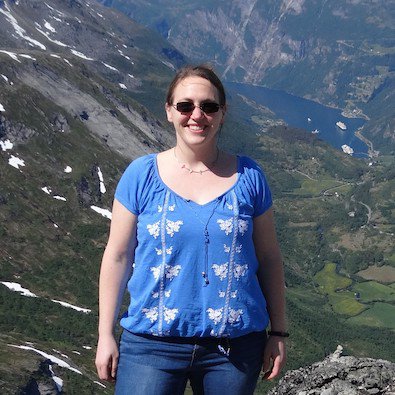
Dr Shasta Marrero
Shasta is a geomorphologist using geochronology to understand the processes shaping our landscape
Shasta investigates the landscape by dating rocks, combining fieldwork, lab work, and computer coding. Although she loves glaciers and glacial moraines, she is also interested in surface processes, such as erosion. She has visited all seven continents, including fieldwork in Antarctica, Kyrgyzstan, USA, and Scotland. Shasta is a lecturer in Environmental & Physical Geography at Cardiff University.
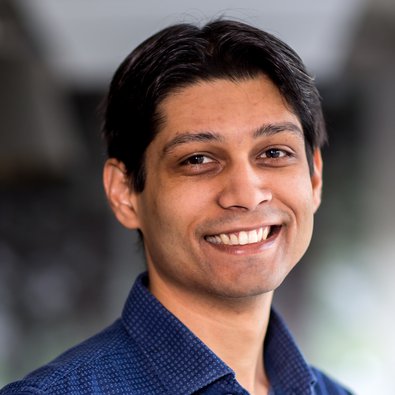
Dr Ankit Kumar
Ankit is a Lecturer in Development and Environment within the Department of Geography at the University of Sheffield.
Ankit is interested climate and energy justice in the global South. His research focuses on the connections between culture, knowledge and politics, and draws from critical development studies, postcolonial studies and environmental geographies. His work is published in several journals, including Transactions of the Institute of British Geographers, Social and Cultural Geography, Antipode and Energy Research and Social Science.
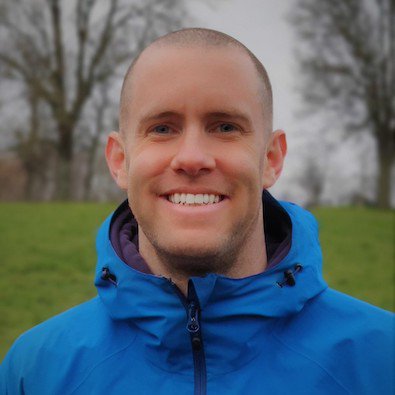
Dr Chris Parker
Chris is a physical geographer specialising in river science and management.
Chris is interested in all aspects of river science and management, including predicting where erosion and deposition will occur, and understanding the impact of fallen trees. Chris is a Senior Lecturer in Physical Geography at the University of the West of England, Bristol.
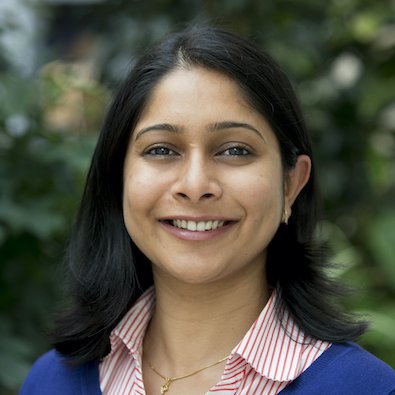
Dr Debadayita Raha
Deb is an Environmental Social Scientist, Lecturer and Programme Leader in Environmental Sustainability
Deb specialises in human geography and international development. Her research focuses on interlinkages of human and environmental changes in urban and rural communities of the Global South analysing livelihood, energy, water and sanitation, women, and governance. She uses qualitative, participatory, and ethnographic methods in the context of India and Ghana.
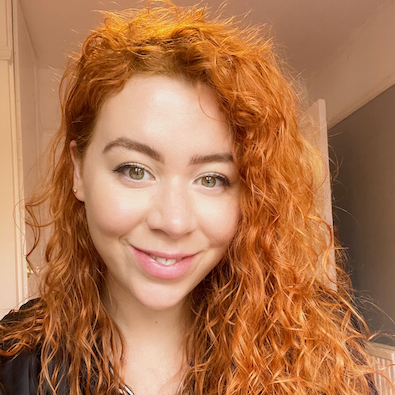
Dr Catherine Oliver
Catherine is a human geographer specialising in food, animals and the environment
Catherine is currently researching urban chickens and their keepers in London, exploring the ethical and environmental reasons that people are turning to this alternative lifestyle. Previously, Catherine has researched the growth of veganism in Britain.
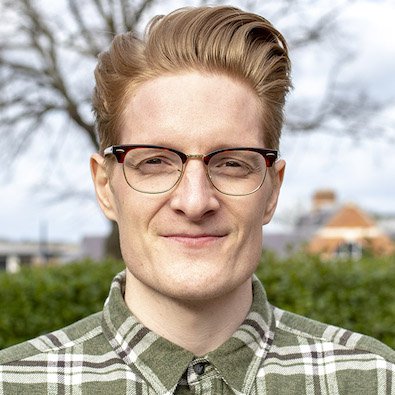
Dr Christopher Turner
Chris is a Research Fellow in Food Systems and Public Health Nutrition at the Natural Resources Institute, University of Greenwich
Chris is an interdisciplinary food systems researcher with a background in human geography and public health nutrition. In his food environment research, he uses participatory methods, such as qualitative-GIS and Photovoice, to investigate drivers of food acquisition and to co-design public health policies for sustainable healthy diets.
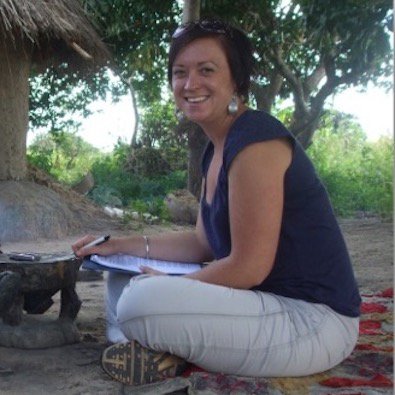
Dr Caroline Day
Caroline is a Senior Lecturer and the Programme Lead for Geography at the University of Portsmouth
Caroline is a human geographer specialising in the geographies of children, youth and families. Her research focuses on the transitions to adulthood of young people in sub-Saharan Africa, particularly addressing how caring responsibilities, education, employment and aspirations, as well as the influence and acceptance of gender-based violence, impact the opportunities for youth growing up.
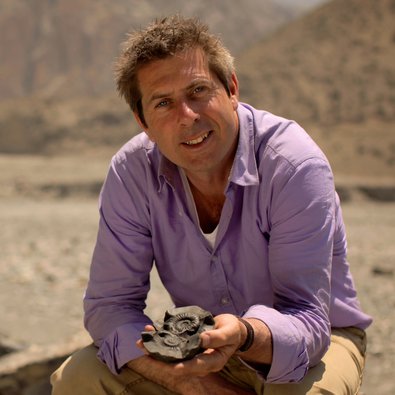
Prof Iain Stewart
Iain is a Earth scientist specialising in the communication of geoscience to public audiences
As the El Hassan Research Chair in Sustainability at the Royal Scientific Society in Jordan, Iain is exploring how geoscience knowledge and understanding of natural hazards, geoenergy and climate change contribute to the on-the-ground challenges of sustainable development.
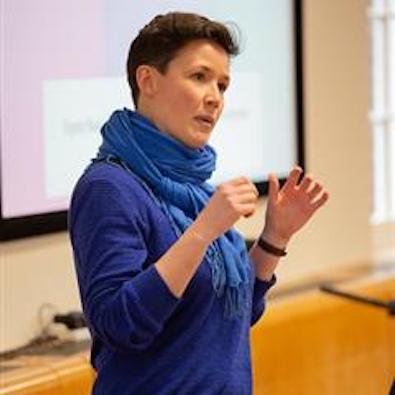
Dr Rebecca Collins
Rebecca is a Senior Lecturer in Human Geography and Deputy Head of Dept at the University of Chester
Rebecca is a human geographer with particular research interests in young adulthood, material cultures of youth, household and neighbourhood sustainability, and everyday lived experiences of sustainable production and consumption.
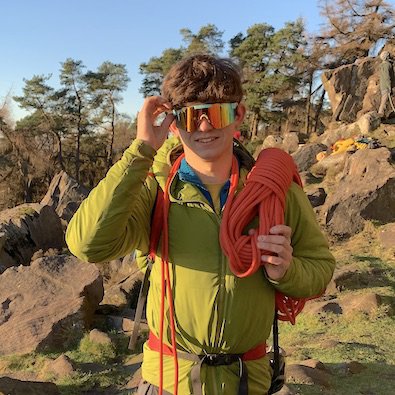
Jacob London
Jacob is a Product Specialist at Rab/ Lowe Alpine
Jacob works in the outdoor clothing industry. In his role as Product Specialist for Rab Equipment, he communicates key product information to retail staff around the UK, from the suitability of each product for certain activities to their environmental impacts.
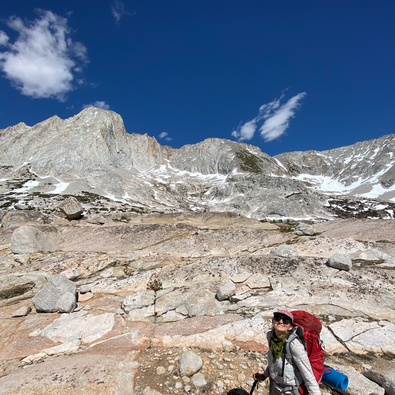
Megan Sixt
Megan is an Ecologist and Research SCUBA diver
Megan an ecologist, interested in estuaries, temperate rocky intertidal zones and tropical freshwater ecosystems. She is currently based in Gabon, Africa where she is a field technician and videographer in Lopé National Park.
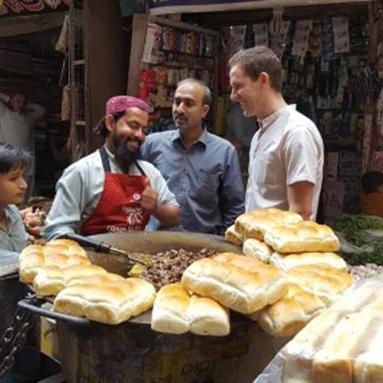
Professor Peter Mackie
Peter Mackie is a Human Geographer focused on achieving social justice through his research
Pete is a Professor of Human Geography at Cardiff University, recognised as a leading international expert in the field of housing and homelessness. He is also interested in urban livelihoods and has explored issues of child labour, rights to public space, and livelihoods during conflict and crises, particularly amongst refugees.
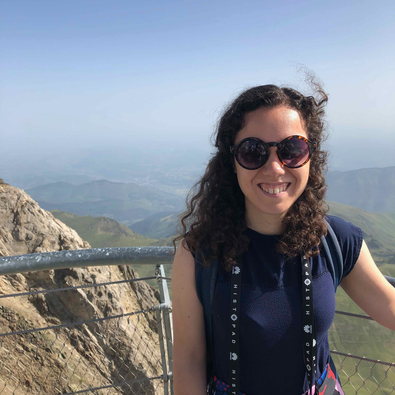
Dr Ruth Slatter
Ruth is a cultural and historical geographer, particularly interested in geographies of faith.
Ruth uses material and visual approaches to explore how religion, faith, and spirituality influence individuals' everyday experiences of space and place. After working as a Lecturer in Human Geography at the University of Hull, she has recently become a Lecturer in Human Geography at the Open University.
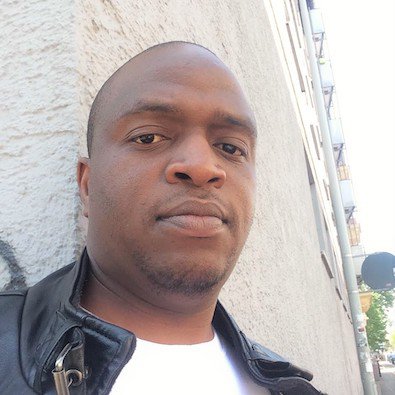
Innocent Masukwedza
Innocent is a climate scientist conducting research at the University of Sussex.
Innocent is a former meteorologist and climate scientist for the Zimbabwe Meteorological Services Department. Now, as a PhD student at the University of Sussex, his main research interests lie in understanding and predicting atmospheric weather systems, with the main aim of improving livelihoods over Southern Africa.
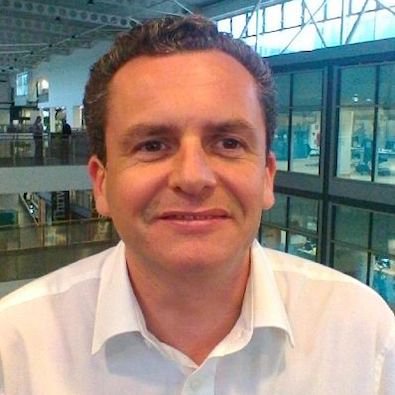
Professor Adam Scaife
Adam is a Professor of Mathematics and Statistics at the University of Exeter and head of long-range prediction at the MET Office
Adam has over 25 years' experience modelling climate and weather, and leads the long-range prediction team at the MET Office, predicting and understanding climate on monthly to yearly timescales. He also conducts research into climate variability, using computer models to understand global circulation patterns, connections between atmospheric systems and modes across the world, and improving long-range forecasts.
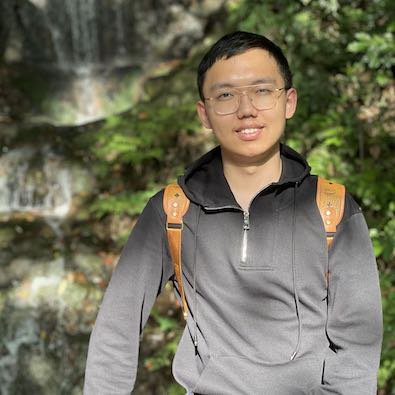
Weiteng Qiu
Weiteng is a PhD student at the University of Exeter
Weiteng is working towards a PhD in climate science at the University of Exeter. His research is focused on tropical and extratropical general circulations.
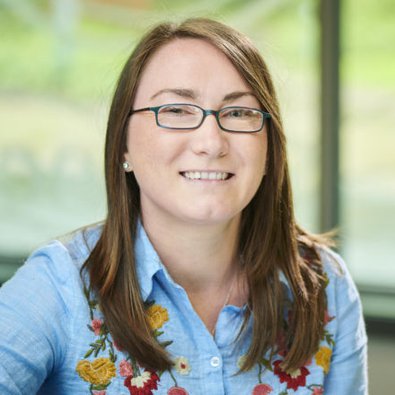
Dr Joanne Egan
Joanne is a Senior Lecturer in Physical Geography at Edge Hill University
Joanne is a Quaternary Scientist primarily interested in environmental reconstruction through palaeolimnology. Joanne has a great interest in palaeo-disturbance especially palaeo-hazards such as impacts and occurrence of volcanic eruptions, hurricanes and tsunamis.
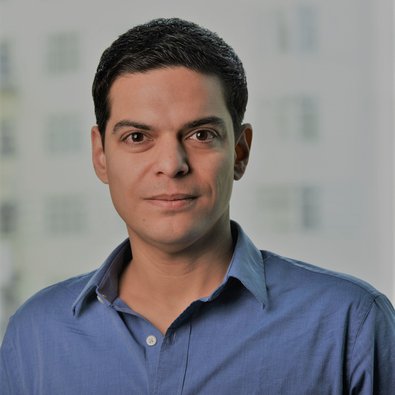
Dr Pablo Brito-Parada
Pablo is a Senior Lecturer in the Department of Earth Science and Engineering at Imperial College London
Pablo specialises in sustainable mineral processing. His work combines advanced modelling and state of the art experimental techniques to enhance mineral separation performance. With his team, he has carried out optimisation work at mineral concentrators worldwide.
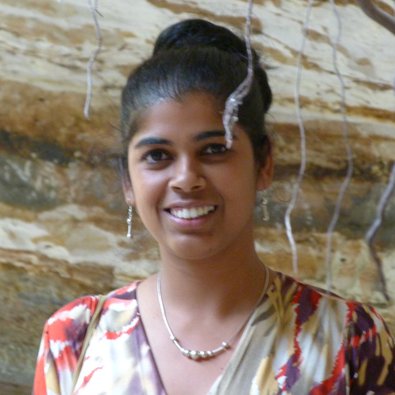
Dr Namrata Bhattacharya Mis
Dr Namrata is a Senior Lecturer in Geography and Natural Hazard Management at University of Chester
Namrata is a geographer whose research interest is positioned at the intersection of physical geography, human geography and development studies. She specializes in the understanding and managing of the consequence of water extremes and associated vulnerabilities in communities. She has worked with communities in different countries such as UK, Brazil, Nigeria, Bangladesh and India.
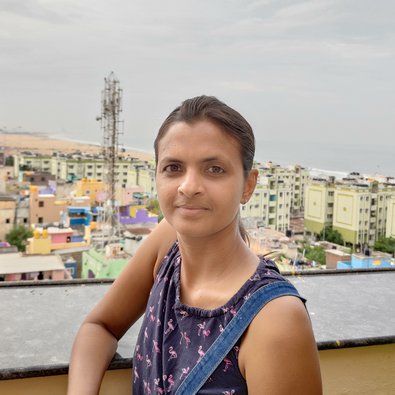
Dr Niranjana R
Niranjana is a lecturer in geography at Queen Mary University of London
A journalist turned urban and environmental geographer, Niranjana has engaged with the lives made and lived around water in its many forms - piped water, groundwater, rivers, wetlands, estuaries, and most recently, the sea - in cities.
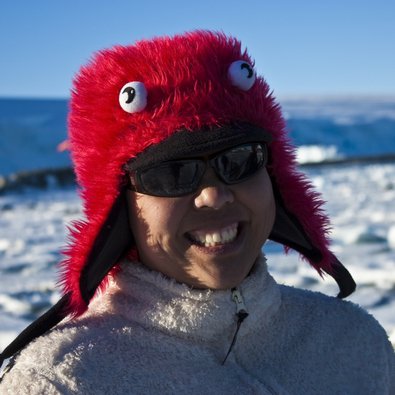
Dr Yueng Djern Lenn
Polar Oceans are climate-critical hotspots for air-sea exchange of heat and freshwater
I'm a polar physical oceanographer who studies how physics governs the way our polar oceans function and effects their role in our changing climate system. As exciting as it has been to document how quickly these ocean systems are warming relative to the rest of the planet, understanding what the consequences are for us is also a sobering call to climate action.

Shane Latchman
Shane is Vice President and Managing Director of Verisk’s extreme event solutions team
As a leader in the field of extreme event solutions, Shane Latchman works to understand and manage risks related to natural disasters and climate change. Based in London, he spearheads projects at Verisk, a company renowned for its innovative research in environmental risk. His work focuses on projects such as the incorporation of diverse data sets, broadening our understanding of marine and energy-related risks, and putting numbers to the impact of climate change.
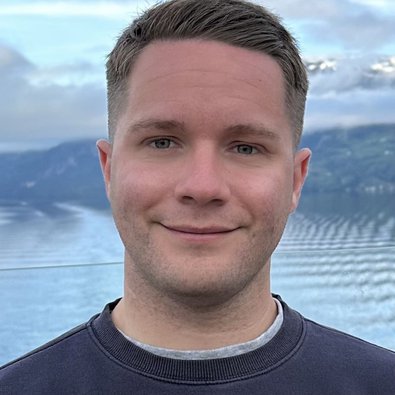
Dr Harry West
Harry is a physical geographer specialising in using GIS to address a range of geographical issues.
Harry is a Senior Lecturer in Geography and Environmental Management at the University of the West of England. Harry specialises in using GIS and remote sensing technology to help address a broad range of geographical and environmental issues. Harry has a particular interest in hydrology and climate science and has explored how large-scale climate systems influence hydroclimate across the UK.
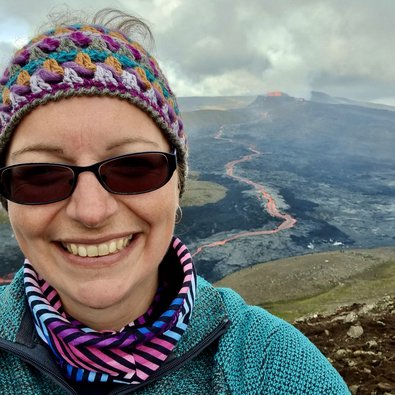
Prof Janine Kavanagh
Janine is Chair of Volcanology at the University of Liverpool and founder of the MAGMA Lab.
Janine is a geologist who studies how magma (molten rock) moves beneath the surface to feed volcanic eruptions. She uses analogue materials such as jelly and syrup to study the geophysical signals that indicate an eruption may be about to occur, and works in field locations such as Iceland, Australia and the USA to test her models.
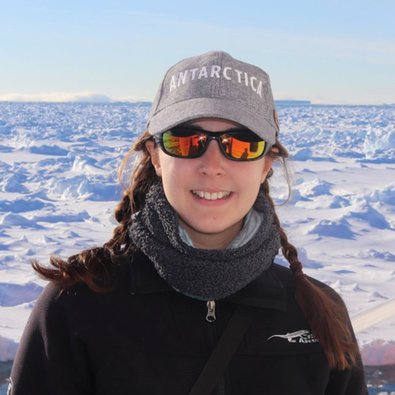
Dr Christine Batchelor
Christine is a Lecturer in Physical Geography at the University of Newcastle.
Christine's research seeks to understand how ice sheets behaved in the past, including how they responded during previous periods of climate warming. This work often requires Christine to work on research vessels in the Arctic and Antarctic for weeks at a time.
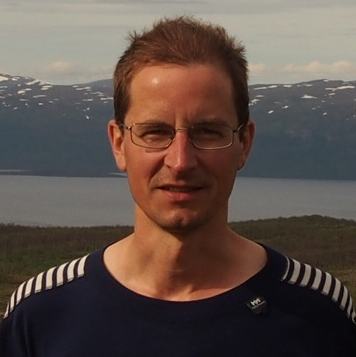
Professor Jens-Arne Subke
Ecosystem Ecologist interested in soil carbon stocks
My research addresses the formation and stabilisation of organic matter in soils, as well as processes involved in its decomposition. I have worked in Subarctic treeline forests, temperate peatlands and forests, and tropical savannahs, combining field and lab methods alongside ecosystem models to understand and predict soil organic matter changes.
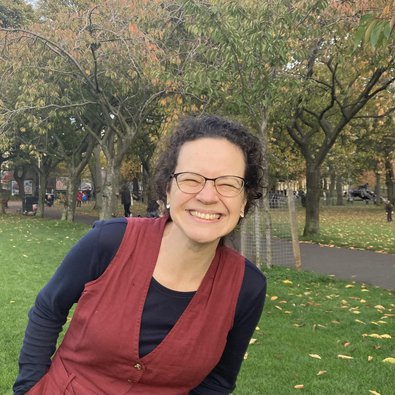
Dr Mary Lawhon
Mary is a human geographer thinking about urban infrastructure and sustainability in African cities.
I am a Senior Lecturer at the University of Edinburgh. My research focuses on waste and sanitation in places like Uganda and South Africa. I'm interested in what kinds of infrastructure enable just and sustainable cities-- and what this tells us about our assumptions about how the world works. For example: do we think we can use infrastructure to control nature? Who should be connected to what?
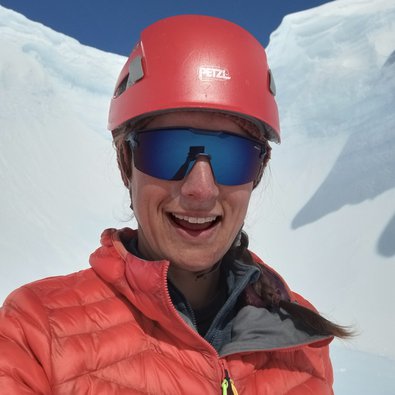
Dr Katie Miles
Katie is a glaciologist in the Department of Geography and Earth Sciences at Aberystwyth University
Katie is a field-based glaciologist interested in how glaciers flow and how they transport meltwater to rivers downstream. She has undertaken fieldwork in Nepal, Norway, and Antarctica, drilling boreholes into glaciers to investigate what goes on beneath the surface. Katie is currently working on the RiPIce project, studying Larsen C Ice Shelf in Antarctica.
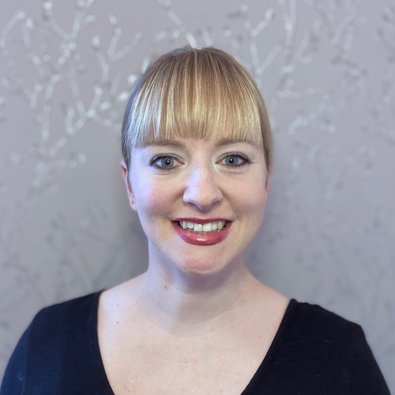
Dr Sarah Knuth
Associate Professor, Department of Geography, Durham University
Sarah Knuth is an Associate Professor in the Department of Geography at Durham University. Her research focuses on critical geographies of climate change and energy transition, finance and the green economy.
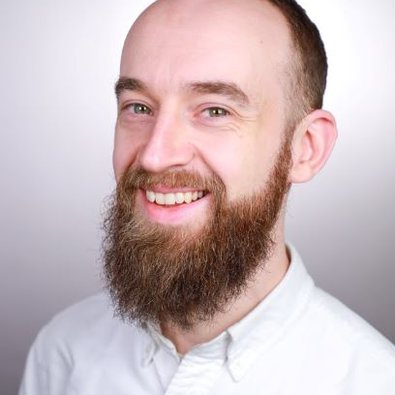
Dr Peter Irvine
Lecturer in climate change and solar geoengineering
Dr. Irvine's research focuses on solar geoengineering, a set of proposals to increase the amount of light that the Earth reflects to lower its temperature. Through his research, he seeks to understand the potential, risks, and benefits of solar geoengineering and to explore its broader implications.
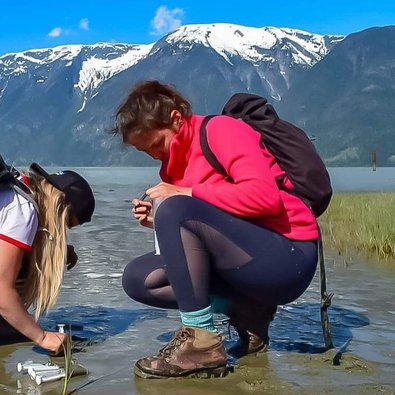
Dr Claire McGhee
Marine Geoscientist Working in Sustainable Energy
I am a Marine Geoscientist working in the renewables industry with Atkins Global. In my daily role, I explore underwater landscapes to unravel the mysteries of the seabed and the rocks below. I create engineering solutions for greener energy by harnessing the Earth's power via wind, waves and tides.
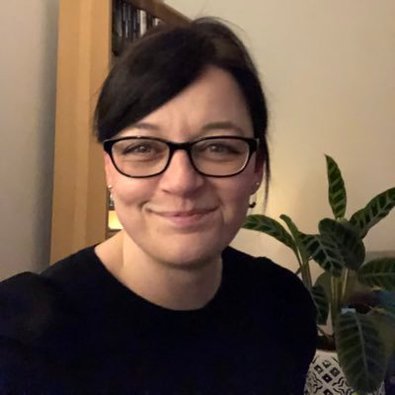
Dr Cheryl McGeachan
Senior Lecturer in Human Geography
I am a human geographer interested in the lived worlds of mental ill-health. My work seeks to understand the lived geographies of people experiencing mental ill-health both in contemporary times and in the past. I work alongside museum curators, archivists, mental health nurses, artists and communities to undertake work that challenges social injustice and attempts to build hopeful futures.
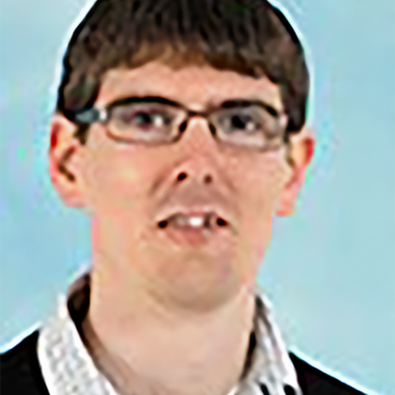
Dr Ian Pattison
Ian is an Associate Professor in Physical Geography at Heriot Watt University
Ian is interested in Rivers, Hydrology and Flooding. His research focusses on holistic flood management, ranging from Natural Flood Management at the catchment scale or Sustainable Urban Drainage Systems in cities, to flood forecasting and warning systems.
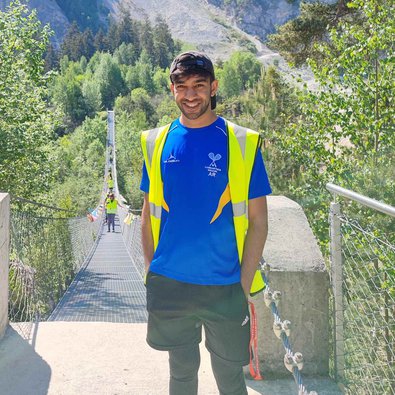
Amir Rafique
Amir is an Environmental Geographer interested in climatic change and biogeochemistry.
Amir is a geographer who is fascinated by the natural world and environmental change linking to climate change. Trips to Iceland, Switzerland and Spain during his time studying have only sparked his interest more. He is currently doing research into thermophilic bacterial spores in cold water environments.
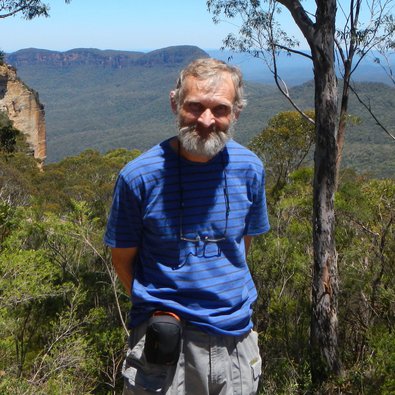
Professor Thomas Blenkinsop
Tom is a geologist at Cardiff University who studies faults, folds and ore deposits in the crust
Tom teaches and researches about movements of the crust which cause fluids to move and form ore deposits. He is interested in how we will supply metals and minerals necessary for the green transition. He loves fieldwork, which he has done mostly in Africa and Australia.
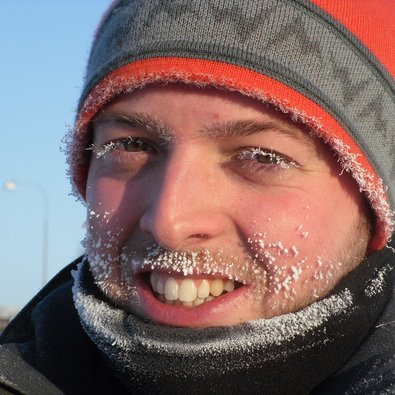
Ben Lepley
Ben is a geologist and ESG consultant hell-bent on improving outreach in geoscience and mining
At school I was known as Eco-Boy and now I work in the mining industry. These things appear to be contradictory but actually it turns out you can be an environmentalist helping to ensure extraction is done responsibly; that is my purpose. My favourite place is Sully Island in South Wales - a tidal island complete with unconformity - a geoscientist's dream!
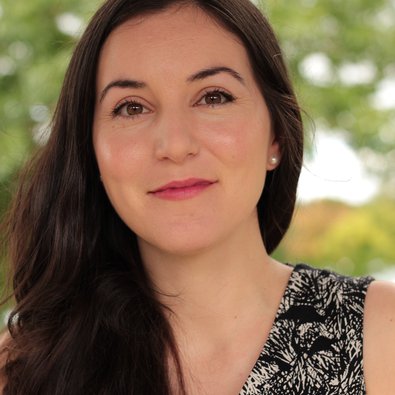
Dr Amber Martin-Woodhead
Amber is an Assistant Professor in Human Geography at Coventry University.
Amber's specialised in economic and feminist geography. Her research focuses on the geographies of consumption and sustainability and the geographies of gender. She's interested in minimalism, voluntary simplicity, sustainable production and consumption, circular economies and sustainable & ethical fashion.
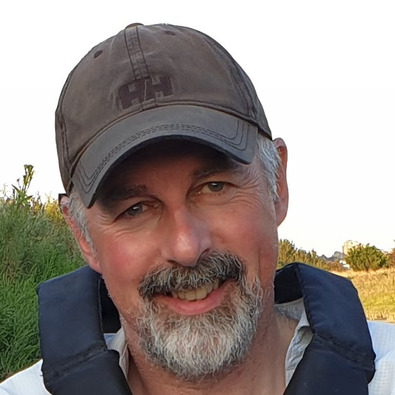
Professor Mark Mulligan
Mark works on Nature's contributions to people and how best to sustain them.
Mark Mulligan is Professor of Physical and Environmental Geography at King’s College London and Honorary Fellow of UN Environment - World Conservation Monitoring Centre. He works on a variety of environmental topics and is particularly interested in tropical forests.
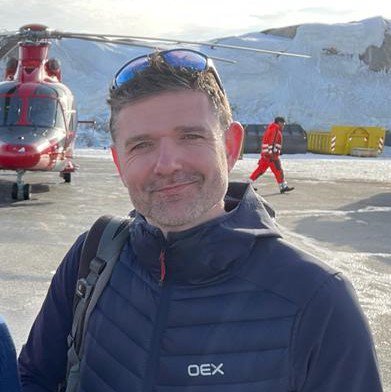
Dr Iestyn Barr
Iestyn is a Reader in Physical Geography at Manchester Metropolitan University
Iestyn's research focuses on mountain environments and particularly interactions between volcanoes and glaciers. This includes consideration of volcanic impacts on glaciers and assessing whether glaciers are useful for monitoring and predicting volcanic eruptions.
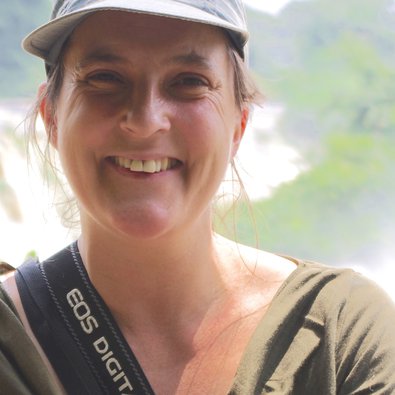
Professor Kate Abernethy
SEGC Research Station, Lopé National Park, Gabon
Gabon's National Park Service (ANPN) and the University of Stirling have collaborated for decades to run a broad ecological research programme in Lopé, which I lead, including the work on fire and savanna ecology highlighted in the videos on Grasslands. We also work on rainforest ecology and conservation, supporting better management which will increase tropical forests' survival in the future.
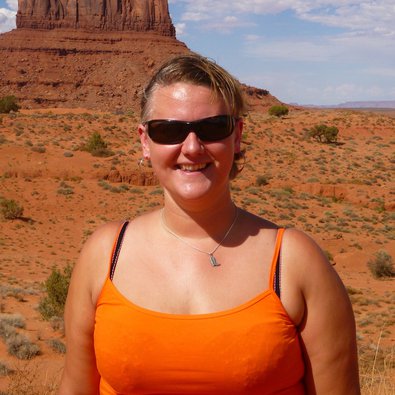
Dr Penelope Wilson
Penelope is a Senior Lecturer in Earth Sciences at Kingston University London
I am an enthusiastic field geologist with a strong background in structural geology, and geophysical & environmental hazards and disasters. Particular research interests include: magma ascent, emplacement and accommodation within the crust; structural geology – fracture networks and shear zones; and assessing and communicating risk associated with geo-tourism.
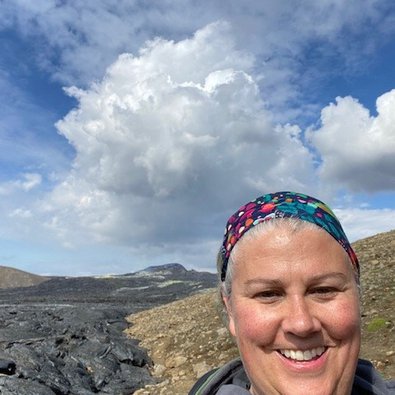
Catherine Rule
Cath is the Geography Tours Development Manager at Rayburn Tours.
During her time as a geography teacher, Cath loved to take students out of the classroom to experience and understand the world around them. Now working for Rayburn Tours, in educational travel, Cath works to develop itineraries and destinations for young geographers to explore and leads groups on tour, to destinations including Iceland, Italy, Morocco and the Netherlands.
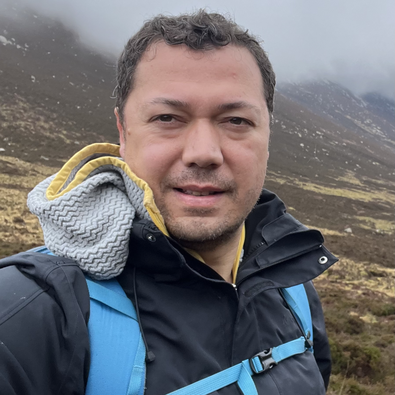
Dr Paul Eizenhöfer
Senior Lecturer in Computational Geoscience – Quantifying Landscape Evolution
Paul adopts multidisciplinary approaches integrating empirical and computational methods in structural geology, geochronology and geomorphology to tackle problems in the wider Earth System framework. He studies the Himalayan-Alpine system and Cenozoic Central Asia by quantifying and reconstructing fault activity, surface processes, physiography and landscape evolution.
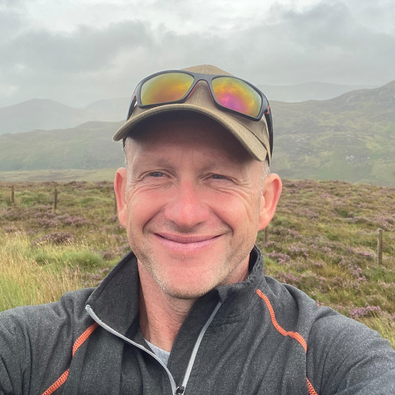
Dr Marc Reichow
Marc is an Assoc. Professor in Igneous and Metamorphic Geochemistry at the University of Leicester
Marc is a geoscientist with strong backgrounds in igneous petrology, mineralogy, geochemistry and geochronology. His research interests are diverse but focus on the formation of large igneous provinces, explosive volcanism (specifically super-eruptions) and the role of volcanism in climate change. He is passionate about promoting Earth sciences and communicating the subject to public audiences.
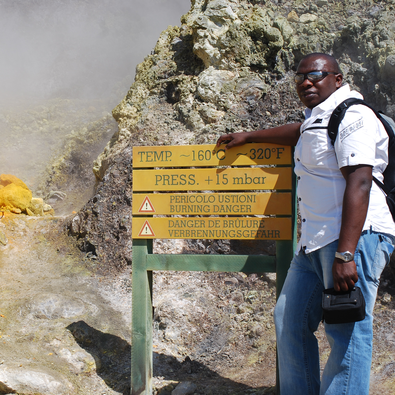
Dr Servel Miller
Geoscientist with a passion for natural hazard management utilising innovative technologies.
A Geoscientist with over 25 years working in environmental hazards, risk assessment and GIS/Remote sensing fields. I have a particular interest in the development and application of innovative and emerging technologies (e.g. drones, augmented/virtual reality 3D imaging) to hazard management & community engagement in a range of environments and geographic settings in the Caribbean, Asia and Europe.
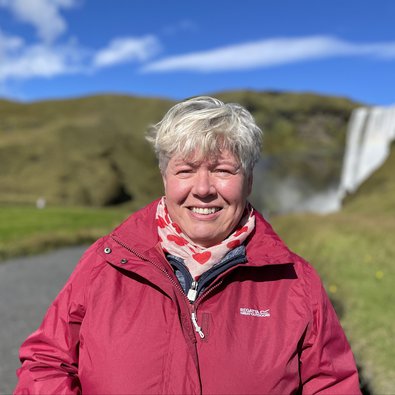
Dr Jane Boygle
Jane is a physical geographer specialising in Quaternary environmental reconstruction.
A principal lecturer in Natural Sciences at Manchester Metropolitan University, Jane's research focuses on using volcanic ash (tephra) from Iceland as a dating technique in lakes and peat bogs. She specialises in teaching across a range of geography modules, including the relationship between volcanoes and society, past and present climate change, and residential field trips and research design.
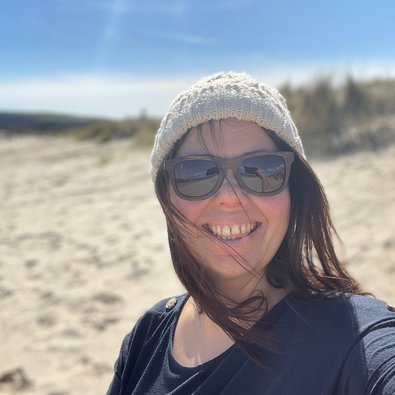
Jo Harris
Jo Harris is a Marine Biologist and geographer who specialises in fieldwork and outdoor learning.
Jo is passionate about engaging learners of all ages with the natural world. As Education Manager with the Field Studies Council, Jo's role promotes inspirational environmental learning and high-quality fieldwork in geography and science with an emphasis on how we see, understand and investigate the world around us.
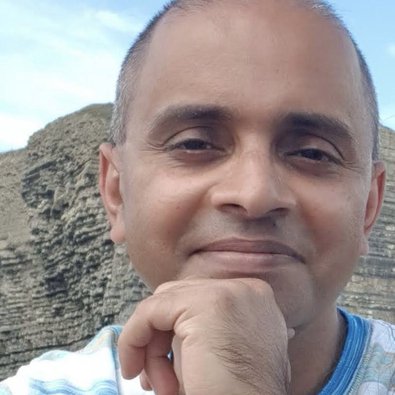
Dr Deepak Gopinath
Deepak is Associate Director for Planning and Sustainable Change at UWE Bristol.
Deepak is a town planner and urban geographer with expertise in visual research methods where the focus is on co-production of knowledge for wellbeing in unequal cities. These include use of Minecraft in youth-masterplanning projects, conceptual frameworks for embedding community resilience, and interactive learning environments.
